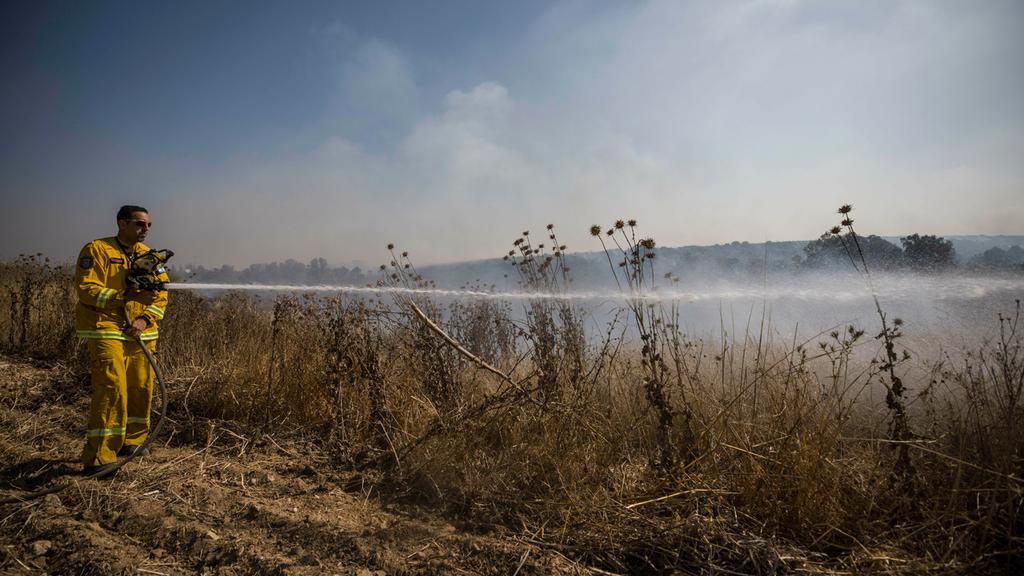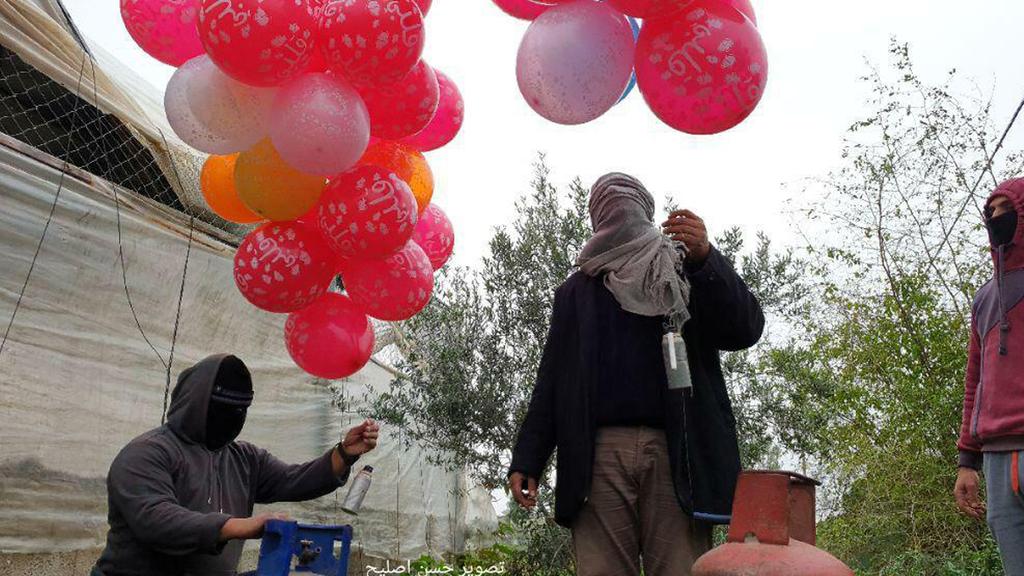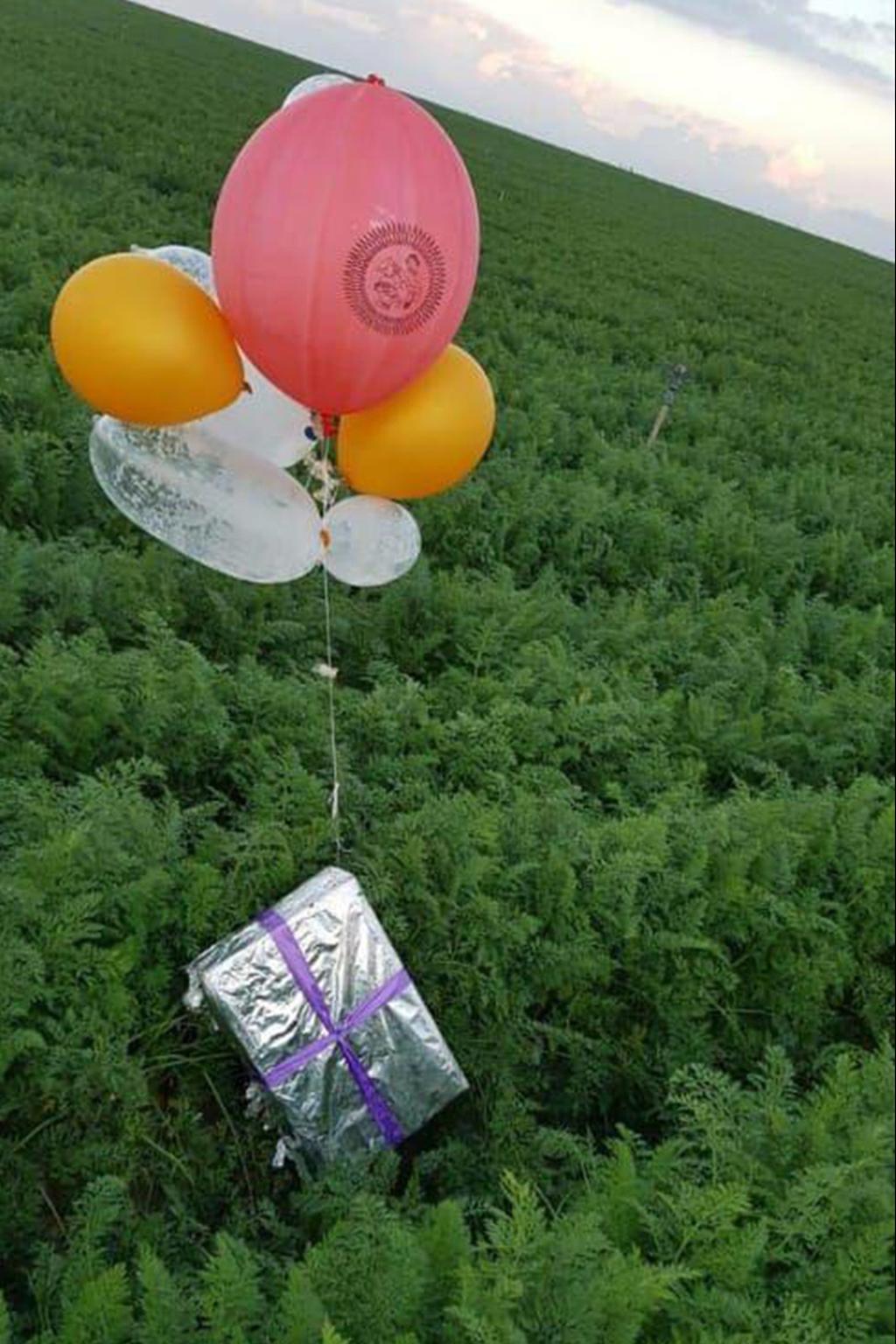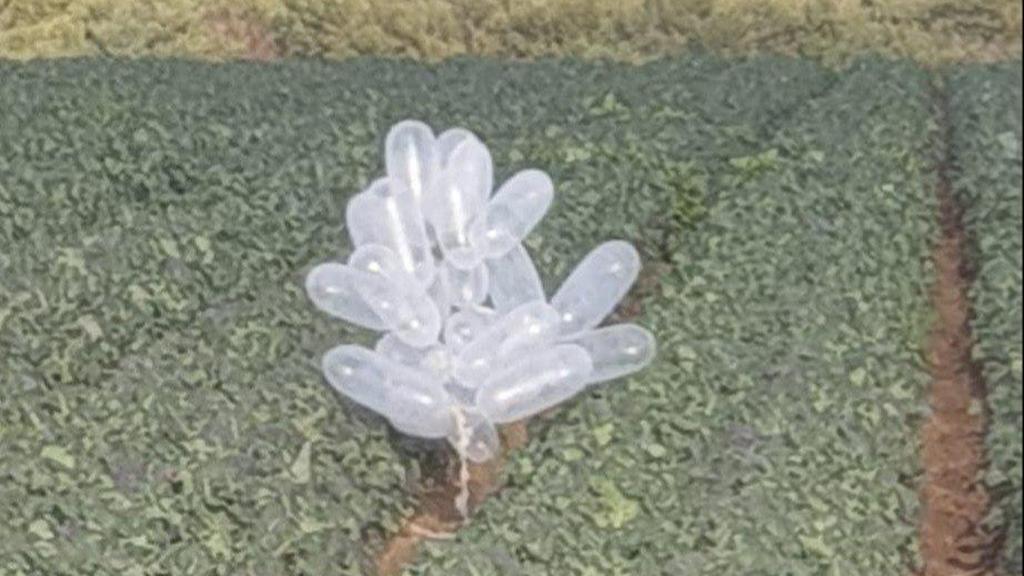Getting your Trinity Audio player ready...
Israeli farmers in communities bordering the Gaza Strip will lose millions from the government budget allocated for the fight against the incendiary balloon phenomenon that has been ravaging the area for the past two years.
The Ministry of Agriculture and Rural Development on Sunday said it will cut at least NIS 1.5 million from the NIS 8 million budget first earmarked for the cause in 2018 when airborne devices sent by Palestinian militants were scorching thousands of acres of agricultural land near the Gaza border.
4 View gallery


Fires from incendiary balloons ravage the Gaza border region in the summer of 2019
(Photo: AP)
The funds were meant to compensate farmers who were forced to harvest their crops early in order to prevent fires caused by the balloons from destroying the fields. Since the crops were being harvested early, the produce wasn't ripe and could not be sold at a full price, making the government subsidies essential for the farmers' survival.
In 2019, thanks to the financial help provided by the budget, the farmers in charge of the fields were able to harvest their crops early, negating the fire risk incendiary balloons posed to the area.
However, the militants' practice of sending balloons drenched in flammable liquid that caused thousands of fires, later changed. The militants began attaching explosives to airborne devices, which although extremely dangerous don't cause widespread conflagrations. The move prompted the ministry to decide on cutting the funds, deeming it unnecessary at this point.
"Instead of helping farmers, especially the ones along the border [with Gaza], the country chooses to harm them," said one farmer after receiving a letter from the ministry informing him of the expected budget cuts.
"These days, when the entire world is worried about the spread of the coronavirus and the import industry is suffering, we see the importance of local agriculture," he said. "The budget as it stands [following the cuts] doesn't compensate the farmers properly, so early harvesting is not an option for us anymore," the farmer added.
The head of the Israel Farmers Association, Avshalom Vilan, called on Prime Minister Benjamin Netanyahu to intervene and prevent the funds from being cut.
"Hundreds of millions of shekels are being spent in order to protect the areas near the Gaza Strip, and they cut almost NIS 2 million from the budget allocated for the area's farmers."
The Minister of Agriculture, Tzachi Hanegbi, shifted the blame for the looming budgetary cuts, calling it "a grave mistake."
"The initiative to support early harvesting of fields was meant to help negate damages to the farmers most vulnerable to terror attacks, whose field are closest to the line of fire," stated Hanegbi's spokesperson, "in the end it will be the Ministry of Finance who will deal with the costs if explosive balloons return."




